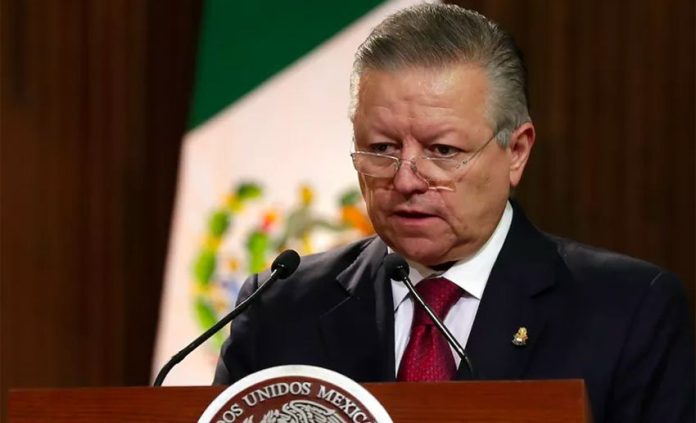Jalisco is one of five problem states for corrupt judges according to a map of corruption allegations against federal judges and magistrates across the country.
Since the previous federal government, the Supreme Court has been focused on the issue in Jalisco, where corruption cases, collusion between officials and organized crime and sexual and labor harassment have been a problem for the federal judicial branch.
Late last year then-Chief Justice Luis María Aguilar Morales presented a map detailing judicial corruption allegations, identifying Jalisco, Puebla, Veracruz, San Luis Potosí and Zacatecas as “red flags.”
Current Chief Justice Arturo Zaldívar Lelo de Larrea has focused on addressing corruption in the third circuit in Jalisco, which has been considered a center for corruption for at least eight years, when investigations of judicial officials were first ordered.
But in spite of the investigations, judicial corruption is still rampant in the state.
On May 3, the chief justice told El Universal that a “renewal” was under way in the third circuit, which includes investigations, disciplinary actions and reassignments of federal judges and magistrates.
“We think reassignments are important to bring in new blood,” Zaldívar said.
The judicial branch is also collaborating with the Financial Intelligence Unit (UIF) to detect irregularities in the income of federal officials.
The UIF recently froze 50 million pesos (US $2.6 million) in bank accounts belonging to a federal magistrate who is accused of giving favorable rulings to members of the Jalisco New Generation Cartel (CJNG). According to Reforma, the magistrate is Isidro Avelar Gutiérrez.
Last April, Senator Ricardo Monreal accused Avelar of having met with relatives of Nemesio “El Mencho” Oseguera Cervantes, leader of the CJNG, and having ordered the release of his son, who was accused of money laundering and organized crime.
Avelar is one of those judges who have been reassigned. He is now working at a federal court in Chilpancingo, Guerrero.
Sources told El Universal that judges and magistrates accused of corruption are reassigned when there is not enough evidence to open a formal investigation against them. Once an investigation is opened, they must be suspended.
Between 2017 and 2018, the Supreme Court ordered 36 disciplinary proceedings against federal judges, magistrates and secretaries, of which seven were in Jalisco.
Source: El Universal (sp), Reforma (sp)
